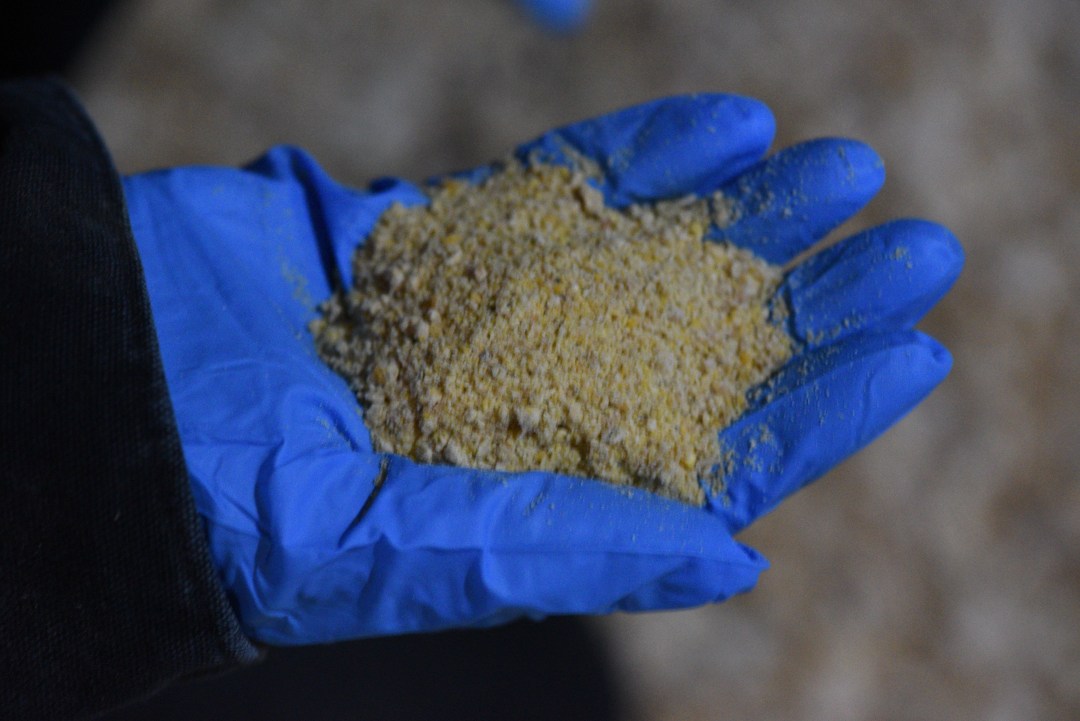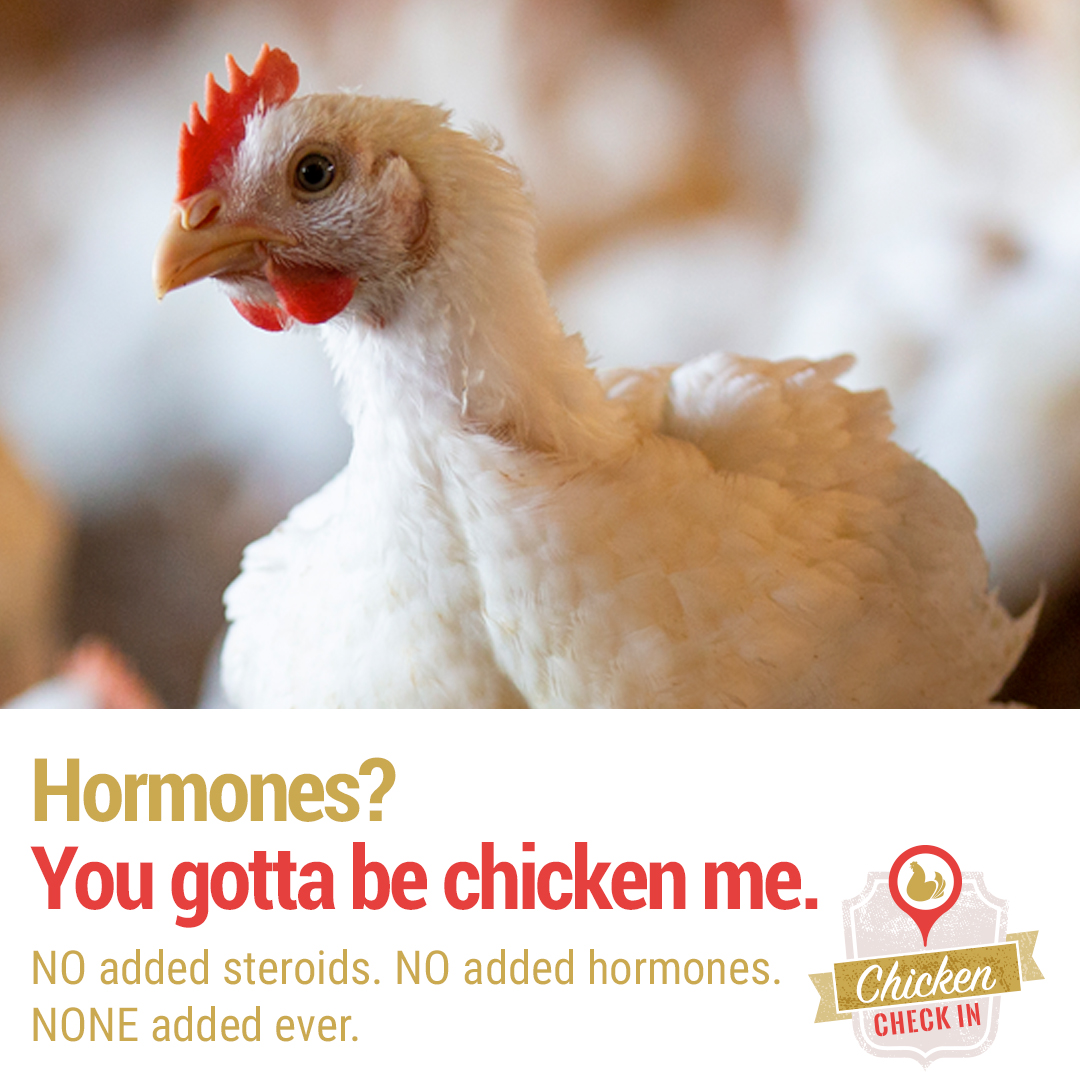Chicken farmers work with certified animal nutritionists and independent experts to develop healthy diets for their flocks. Nutrition is very important in the early stages of life and baby chicks receive extra feed to ensure they are off to a healthy start. That’s why all broiler chicken flocks have 24/7 access to food and water.
There are many factors that go into raising healthy and strong broiler chicken flocks like controlled housing environments, proper veterinary care, but did you know chickens also have specialized diets prescribed by animal nutritionists? We explored this topic this week in a new blog post on Chicken Check In.
Broiler chickens have carefully formulated feed, tailored to all stages of their lives to ensure farmers are providing the right nutrients at the right time.
Chicken feed is primarily a mix of corn and soybean meal as advised by poultry nutritionists. Corn is the primary element in most chicken diets, in fact, two-thirds of chicken feed is made up of corn.

None of the feed used in broiler chicken flocks contain any added hormones or steroids and federal regulations have prohibited the use of such processes since at least the 1950s.
 The National Chicken Council’s Animal Welfare Guidelines and Audit Checklist for Broilers recommend that broiler diets must be formulated, produced, and fed to prevent all signs of nutritional deficiency and to promote good health and normal maintenance and growth. And that all feed recommendations must be reviewed by a poultry nutritionist.
The National Chicken Council’s Animal Welfare Guidelines and Audit Checklist for Broilers recommend that broiler diets must be formulated, produced, and fed to prevent all signs of nutritional deficiency and to promote good health and normal maintenance and growth. And that all feed recommendations must be reviewed by a poultry nutritionist.
Not only is chicken feed and water intake monitored by farmers and advised upon by poultry nutritionists, but all feeding and drinking stations are adjusted by height as the birds grow so they are easily accessible at all stages of their lives.
Want to learn more about how broiler chickens are raised on the farm? Check out our Day in the Life video series to see all aspects of chicken farming from biosecurity and health management to chicken housing and transportation.

